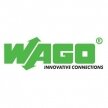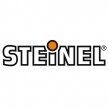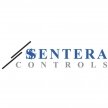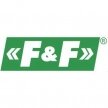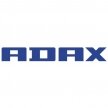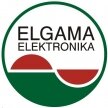-
Product Catalog
- Security and Surveillance Systems
- Automatic Circuit Breakers for Direct Current (DC) Circuits with Integrated Overload, Short-Circuit, and Voltage Stabilization Protection Functions
- Lighting with the help of electrical energy
-
Automation and Control Systems
- Automation control accessories
- Control components for automation and control systems
- Passive lifting | unloading | transporting magnets
- Signal converters | controllers for automation control | for control systems
- Touchscreens | panels for automation control | control systems
-
Power Contactors | Control Circuit Intermediate Relays
- Mini contactors for electric motor control
- Contactors | Electrical starters | For equipment control
- Electromechanical thermal relays | electrical equipment protection
- Contactors with enclosure and control buttons | for electrical equipment control
- Control coils for contactors | starters | electrical equipment control
- Adapters-converters for relays and contactors
- Additional contacts | Accessories for contactors
- Relays for electrical equipment automation control | monitoring
- Relay sockets | for connecting relays to the control system
- Relay modules | for the safe operation of electrical equipment
- Optical sensors | detectors for automation devices
- Automation control | Data transmission | Low current
- Sealing profiles | rubber | gaskets | strips
- Inflatable Liquid Storage Tanks | Reservoirs | Bladders
- Inflatable rubber plugs for sealing high-pressure plumbing pipes
- Electrical distribution and installation
- Solar Energy Generation and Management Equipment
- HVAC control solutions for heating and ventilation.
- Special products and accessories
- Other products
- Safety tools
- Quality used products
Relay modules | for the safe operation of electrical equipment
- Read more
Relay modules are electrical devices used to control and protect various systems and equipment, particularly in industry, automation systems, and commercial applications. They are often used to switch electrical circuits or to turn equipment on/off according to specific parameters or signals. Relay modules play a crucial role in ensuring the safe and efficient operation of devices, as well as enabling centralized control of various functions, including protection and signaling systems.
The use of relay modules can be highly versatile, but they are most commonly used for equipment protection against short circuits, overloads, and other dangerous situations. Additionally, they allow centralized control of various systems, such as lighting, ventilation, heating systems, and industrial equipment.
-
Read more
Main Features and Technical Specifications
Operating Voltage: Relay modules can operate at various voltages, ranging from 12V to 230V AC/DC, depending on the type and application, ensuring their versatility in different systems. Operating Current: The current level can range from 5A to 30A or more, depending on the type and usage of the relay module. High current relay modules are used in industrial equipment and high-power systems. Contact Type:
NO (Normally Open) – standard contact that closes when the control signal is applied. NC (Normally Closed) – contact that opens when the control signal is applied. Bifurcated Contacts – allow control of multiple circuits simultaneously.
Device Size: Relay modules are compact and typically mounted on a DIN rail to ensure easy and convenient installation in control panels or other devices. Protection Rating (IP): The protection rating of relay modules often ranges from IP20 (protection against fingers, suitable for dry environments) to IP65 (water- and dust-resistant, suitable for outdoor use). Manufacturing Standards and Certifications: They are often certified according to CE, UL, RoHS, and other standards to meet quality and safety requirements. Ambient Temperature: They typically operate in the temperature range of -25°C to +60°C, allowing them to be used in various climatic conditions, both cold and hot environments. Main Functions and Use
Control and Protection: Relay modules are used to automatically turn equipment on or off based on set parameters such as voltage, current, temperature, or other system parameters. They also ensure safety by turning off the system in emergency situations, such as overloads, short-circuit conditions, etc. Industrial Processes: Relay modules are widely used to control various industrial systems, such as production lines, ventilation systems, electric motors, heating, and ventilation systems (HVAC), and to protect these systems from malfunction. Protection and Alarm Systems: Relay modules are essential components of protection systems, used to protect equipment from improper voltage, overloads, and other adverse conditions. They are also used in various alarm and signaling systems to alert about potential problems. Automation and Control Systems: They are used in automated systems where switching and control based on external signals or set parameters are required. For example, in industrial control panels and automation control systems. Advantages
Reliability and Safety: Relay modules ensure safe and precise equipment control, help protect systems from failures and malfunctions, reduce the possibility of errors, and increase system reliability. Fast Response and Accurate Control: These modules provide fast and accurate switching based on set parameters, which is essential for optimizing processes and ensuring system efficiency. Versatile Application: Relay modules are suitable for various industrial and commercial applications as they are compatible with different devices and can be easily adapted to various systems. Additional Features: Many relay modules include integrated protection (overvoltage, overload, etc.), and remote control and monitoring systems can also be implemented. Disadvantages
Installation and Integration Complexity: Installing and integrating relay modules into systems can be complex, especially if they need to be deployed in complex or specialized industrial systems. Programming may also be required to achieve maximum functionality. Cost: While relay modules are highly efficient, their cost can be higher than simpler equipment control solutions, such as basic switches. Dependence on External Controllers: Relay modules often require external controllers or signals to control their operation, so they may be limited under certain conditions or require additional components.
Relay modules are essential components in automated systems that ensure precise and reliable equipment control and protection from potential faults, such as overloads or voltage fluctuations. They are widely used in industry, commercial systems, and automation solutions to achieve high efficiency and safety. Although installation and integration can be challenging, the benefits and reliability they provide often pay off in the long run.
No items found.
Subscribtion to new arrivals
US IN SOCIAL NETWORKS










